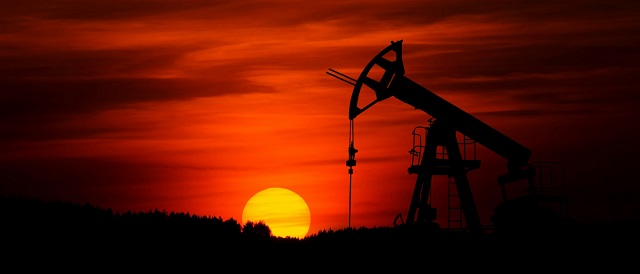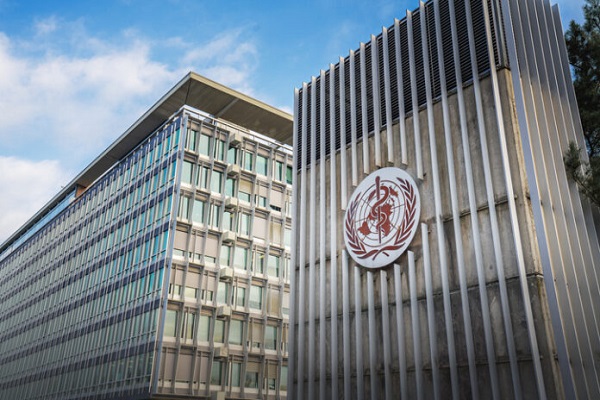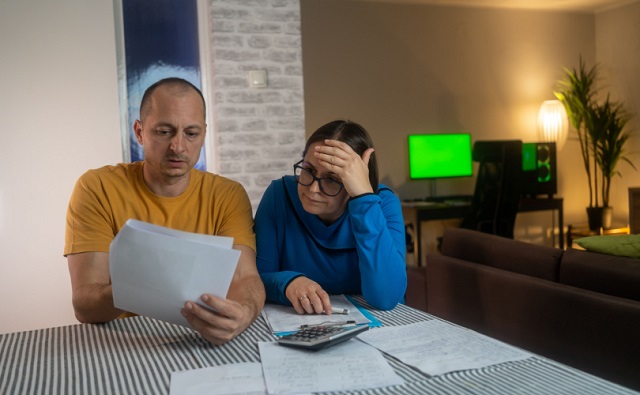COVID-19
$290 million lawsuit against Freedom Convoy participants designed to silence expression

From the Justice Centre for Constitutional Freedoms
This lawsuit also seeks damages from citizens who donated to the peaceful protest.
Lawyers on behalf of Chris Barber, Tamara Lich, and other Freedom Convoy participants argue that the $290 million class action against them is designed to silence their expression–expression the public had an interest in hearing [Image by Dave Chan/AFP via Getty Images]
OTTAWA, ON: The Justice Centre announces that lawyers representing Tamara Lich, Chris Barber and other defendants against a class-action lawsuit brought by Zexi Li and other Ottawa residents will be in court this Thursday, December 14, 2023. Tamara Lich and the other defendants have filed an application to dismiss Zexi Li’s $290 million class action as a Strategic Lawsuit Against Public Participation (SLAPP)–a lawsuit designed to silence the expression of peaceful protesters.
In February 2022, Ottawa residents Zexi Li and Geoffrey Delaney, Happy Goat Coffee Company, and a local union commenced a $290 million class-action lawsuit against Chris Barber, Tamara Lich, and other Freedom Convoy participants, seeking damages against peaceful protesters for allegedly causing a nuisance. This lawsuit also seeks damages from citizens who donated to the peaceful protest.
Anti-SLAPP legislation serves to protect defendants against “Strategic Lawsuits Against Public Participation” (SLAPP)–lawsuits designed to silence a defendant’s freedom of expression through threats of damages or costs. Anti-SLAPP motions are designed to end such lawsuits and are available to a defendant in any proceeding against them. Once an anti-SLAPP motion has been filed, the defendant must demonstrate that the proceeding against them arises from their expression that “relates to a matter of public interest.” If the defendant can demonstrate that their expression does relate to a matter of public interest, the plaintiff must then demonstrate that their lawsuit has “substantial merit” and that the defendant has no valid defence. A judge must then weigh the importance of the expression at stake against the importance of the plaintiff’s allegations of harm.
Lawyers in the Justice Centre network argue that the proceedings against Tamara Lich, Chris Barber and others do, in fact, arise from their expression. Donating to and participating in the Freedom Convoy amounted to an expression of support for the protest, and of disagreement with the Government of Canada’s response to Covid–matters of public interest. Further, lawyers argue that Zexi Li’s class-action lawsuit contains factual and legal weaknesses; it is not obvious that the proceeding against the defendants has “substantial merit.” Finally, lawyers argue that the defendants do have valid defences and that the value of the expression at issue outweighs the allegations of nuisance against them.
On Thursday, December 14, 2023, the parties will proceed to oral argument at the Ontario Superior Court of Justice, arguing that the plaintiffs’ entire class-action lawsuit is, in fact, a SLAPP action disguised as a nuisance claim and that the lawsuit is merely intended to punish the defendants for participating in the 2022 Freedom Convoy protest. If successful, all or part of the class-action lawsuit will be dismissed.
Lawyer James Manson stated, “Zexi Li’s lawsuit engages the very purpose that ‘anti-SLAPP’ legislation was designed to address: an attempt to silence peaceful expression, and the right of defendants to participate in public debate.”
John Carpay, President of the Justice Centre, stated “The fundamental Charter freedoms of expression, association and peaceful assembly must be vigorously protected and defended, whether they are attacked directly by government or indirectly through a misguided civil action.”
COVID-19
NIH Quietly Altered Definition For Gain-Of-Function Research On Its Website, Former Fauci Aide Confirms

 From the Daily Caller News Foundation
From the Daily Caller News Foundation
By JASON COHEN
National Institutes of Health (NIH) Principal Deputy Director Lawrence Tabak confirmed on Thursday that his agency’s communications department altered NIH’s definition for gain-of-function research, with the change being “vetted” by “experts.”
The NIH until Oct. 20, 2021 defined this research as “modif[ying] a biological agent so that it confers new or enhanced activity to that agent,” while “some scientists use the term broadly to refer to any such modification,” according to the House Oversight Committee. Republican Rep. Nicole Malliotakis of New York questioned Tabak, a former aide to Dr. Anthony Fauci, about the agency changing its definition of the research on its website, asking him who authorized the alteration.
WATCH:
The current website does not define gain-of-function research, but asserts this research is usually uninvolved with enhanced potential pandemic pathogens.
“The change was made by our communications department because of the confusion that people have about the generic term of gain-of-function and the specific term gain-of-function,” Tabak testified.
Malliotakis responded by suggesting the communications department would not be qualified to make a change like this and must have had other input.
“The content was vetted,” Tabak testified. “By individuals who are subject-matter experts.”
Fauci firmly denied that the National Institute of Allergy and Infectious Diseases (NIAID) funded gain-of-function research on bat-based coronaviruses at the Wuhan Institute of Virology (WIV) before the COVID-19 pandemic during a Senate hearing in May 2021.
“The NIH has not ever and does not now fund gain of function research in the Wuhan Institute of Virology,” Fauci said.
Tabak testified on Thursday that the NIH did fund this research at the Wuhan Institute of Virology, but it “depends on [the] definition.”
The NIAID, which Fauci previously led, funded the nonprofit group EcoHealth Alliance to study bat-based coronaviruses in China that consisted of the transfer of $600,000 to the WIV, the Daily Caller News Foundation previously reported.
COVID-19
COVID Lab Leak: Over four later, EcoHealth Alliance funding is finally suspended

From Heartland Daily News
Thursday, May 16, 2024
Federal Funding Stripped From Nonprofit at Center of COVID Lab Leak Controversy
Today, the Biden administration suspended federal funding to the scientific nonprofit whose research is at the center of credible theories that the COVID-19 pandemic was started via a lab leak at the Wuhan Institute of Virology.
This morning, the U.S. Department of Health and Human Services (HHS) announced that it was immediately suspending three grants provided to the New York-based nonprofit EcoHealth Alliance (EHA) as it starts the process of debarring the organization from receiving any federal funds.
“The immediate suspension of [EcoHealth Alliance] is necessary to protect the public interest and due to a cause of so serious or compelling a nature that it affects EHA’s present responsibility,” wrote HHS Deputy Secretary for Acquisitions Henrietta Brisbon in a memorandum signed this morning.
For years now, EcoHealth has generated immense controversy for its use of federal grant money to support gain-of-function research on bat coronaviruses at the Wuhan lab.
In a memo justifying its funding suspension, HHS said that EcoHealth had failed to properly monitor the work it was supporting at Wuhan. It also failed to properly report on the results of experiments showing that the hybrid viruses it was creating there had an improved ability to infect human cells.
Congressional Republicans leading an investigation into EcoHealth’s research in Wuhan, and the role it may have played in starting the pandemic via a lab leak, cheered HHS’s decision.
“EcoHealth facilitated gain-of-function research in Wuhan, China without proper oversight, willingly violated multiple requirements of its multimillion-dollar National Institutes of Health [NIH] grant, and apparently made false statements to the NIH,” said Rep. Brad Wenstrup (R–Ohio), chair of the House’s Select Subcommittee on the Coronavirus Pandemic in a statement. “These actions are wholly abhorrent, indefensible, and must be addressed with swift action.”
Beginning in 2014, EcoHealth received a grant from NIH’s National Institute of Allergies and Infectious Diseases (NIAID) to study bat coronavirus in China. Its initial scope of work involved collecting and cataloging viruses in the wild and studying them in the lab to spot which ones might be primed to “spillover” into humans and cause a pandemic.
Soon enough, EcoHealth used some of the viruses they’d collected to create “chimeric” or hybrid viruses that might be better able to infect human lung cells in genetically engineered (humanized) mice.
This so-called “gain-of-function” research has long been controversial for its potential to create deadly pandemic pathogens. In 2014, the Obama administration paused federal funding of gain-of-function research that might turn SARS, MERS, or flu viruses into more transmissible respiratory diseases in mammals.
In 2016, NIH flagged EcoHealth’s work as likely violating the 2014 pause.
EcoHealth President Peter Daszak argued to NIH at the time that the viruses his outfit was creating had not been proven to infect human cells and were genetically different enough from past pandemic viruses that they didn’t fall under the Obama administration pause.

Wuhan Institute of Virology and Peter Daszak of EcoHealth Alliance
NIH accepted this argument under the condition that EcoHealth immediately stop its work and notify the agency if any of its hybrid viruses did show increased viral growth in humanized mice.
But when these hybrid viruses did show increased viral growth in mice, EcoHealth did not immediately stop work or notify NIH. It instead waited until it submitted an annual progress report in 2018 to disclose the results of its experiments.
A second progress report that EcoHealth submitted in 2021, two years after its due date, also showed its hybrid viruses were demonstrating increased viral growth and enhanced lethality in humanized mice.
In testimony to the House’s coronavirus subcommittee earlier this month, Daszak claimed that EcoHealth attempted to report the results of its gain-of-function experiments on time in 2019, but was frozen out of NIH’s reporting system.
The HHS memo released today says a forensic investigation found no evidence that EcoHealth was locked out of NIH’s reporting system. The department also said that EcoHealth had failed to produce requested lab notes and other materials from the Wuhan lab detailing the work being done there and the lab’s biosafety conditions.
These all amount to violations of EcoHealth’s grant agreement and NIH grant policy, thus warranting debarment from future federal funds, reads the HHS memo.
That EcoHealth would be stripped of its federal funding shouldn’t come as too great a shock to anyone who watched Daszak’s congressional testimony from earlier this month. Even Democrats on the committee openly accused Daszak of being misleading about EcoHealth’s work and manipulating facts.
Rep. Raul Ruiz (D–Calif.), the ranking Democrat on the House’s coronavirus subcommittee, welcomed EcoHealth’s suspension, saying in a press release that the nonprofit failed its “obligation to meet the utmost standards of transparency and accountability to the American public.”
An HHS Office of the Inspector General report from last year had already found that EcoHealth had failed to submit progress reports on time or effectively monitor its subgrantee, the Wuhan Institute of Virology.
When grilling Daszak, Democrats on the Coronavirus Subcommittee went to great lengths to not criticize NIH’s oversight of EcoHealth’s work. The HHS debarment memo likewise focuses only on EcoHealth’s failures to abide by NIH policy and its grant conditions.
Nevertheless, it seems pretty obvious that NIH was failing to abide by the 2014 pause on gain-of-function funding when it allowed EcoHealth to go ahead with creating hybrid coronaviruses under the condition that they stop if the viruses did prove more virulent.
NIH compounded that oversight failure by not stopping EcoHealth’s funding when the nonprofit did, in fact, create more virulent viruses, and not following up on a never-submitted progress report detailing more gain-of-function research until two years later.
The House Subcommittee’s investigation into NIH’s role in gain-of-function research at the Wuhan lab is ongoing. Tomorrow it will interview NIH Principal Deputy Director Lawerence Tabak. In June, it will interview former NIAID Director Anthony Fauci.
Originally published by Reason Foundation. Republished with permission.
-

 Economy1 day ago
Economy1 day agoFeds spend $3 million to fly 182 politicians and bureaucrats to climate conference
-

 Addictions15 hours ago
Addictions15 hours agoLiberals shut down motion to disclose pharma payments for Trudeau’s ‘safe supply’ drug program
-

 Energy6 hours ago
Energy6 hours agoTech giants’ self-made AI energy crisis
-

 Business2 days ago
Business2 days agoOttawa should end war on plastics for sake of the environment
-

 Energy1 day ago
Energy1 day agoNew Report Reveals Just How Energy Rich America Really Is
-

 Automotive1 day ago
Automotive1 day agoBiden’s Climate Agenda Is Running Headfirst Into A Wall Of His Own Making
-

 Great Reset1 day ago
Great Reset1 day agoBiden Administration Eager to Sign WHO Pandemic Treaty
-

 Economy1 day ago
Economy1 day agoCanadians experiencing second-longest and third steepest decline in living standards in last 40 years








